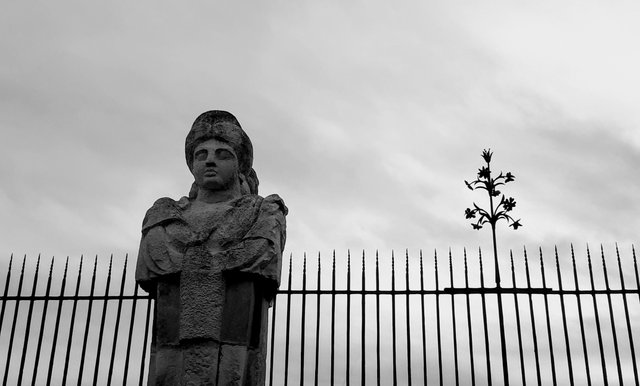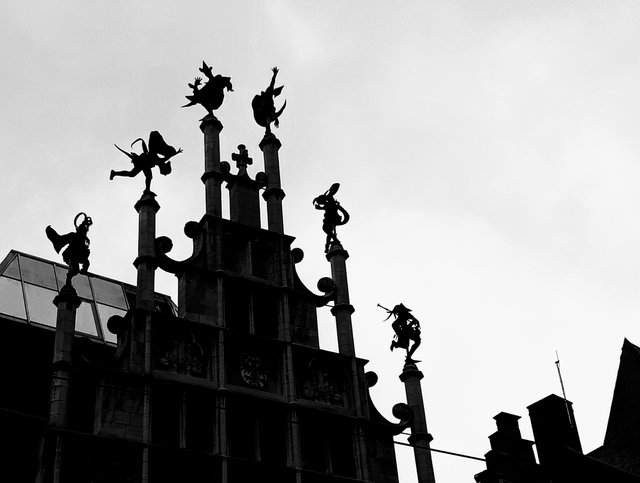Thoughts on Conspiracy Theories

It seems that everyday now there is a new conspiracy theory linked to coronavirus and whats happening in the world. With the bombardment of information from every angle it can be difficult to make sense of it all and to determine what is true and what isn't. Not only that, all of the conflicting information can really invoke a lot of fear in people.
Though I do not have an answer to the issue of sifting through the enormous amounts of data the whole situation has really got me thinking about conspiracy theories and how they essentially operate in exactly the same as the mainstream media, if only a little more extreme.
At this point we all know that fear plays a large role in the mainstream media. That is probably quite obvious. When we watch the news we are not simply consuming unbiased information, we are actually receiving information meant to insight just a little bit of fear within us. This is because people tend to be more interested in things that are a little scary and they tend to care more about negative things in life.
Basically fear is interesting. Fear is attractive and ultimately, fear sells.

Selling fear largely relates to the cognitive heuristic known as negativity bias, which suggests that from an evolutionary standpoint negative information is perceived as more important to an individual. Not only do we learn more from negative events that occur but negative events also tend to be associated with more physical, psychological or emotional risks. For instance, whereas a positive event in our lives may make us feel good temporarily a negative event could ultimately lead to an injury, impairment, social ostracism or even death in some cases.
So from a marketing standpoint it makes sense that the news and mainstream media would utilize fear to engage with their audience and keep them coming back for more. When a person feels threatened in some way they tend to want more information related to the threat, as well as information that could help keep them safe. As such, the media creates a sort of self-sustaining loop with its audience.
For example: News information may be paired with some emotional images like a virus, or a riot, fire, or an injured person. These things likely invoke a subtle fear within the individual in the form of say a small shot of adrenaline released into the blood stream along with a neurotransmitter associated with subconscious fear. This physiological response then makes the individual perceive the information as very important. As such, they go back to the media source again later on in order to get more information on the subject. Additional information in turn makes the individual a little bit afraid again and the process starts all over.
In a weird way the information becomes sort of addicting to the individual and they keep coming back for more over and over again.

Conspiracy theories and the sources that produce them, operate in the exact same way. Conspiracy theories are entirely based on fear, probably even to a more extreme degree then their mainstream media counterparts.
Conspiracy theories tend not to be subtle but instead overtly tell us to be afraid of unknown people who are trying to control us. They tell us that secret enemies are trying to take away our freedom or that they are trying to poison us or harm us in some way. The message of any conspiracy theory is always "be afraid."
I'm not saying that its not a good idea to listen to the different theories and ideas. I think that it can be good to get different perspectives on a subject in order to be informed. Similarly, some conspiracy theories have been accurate in the past and in many cases it can be very difficult to tell the difference between a conspiracy theory and a whistle blower type situation. This is especially true because any good conspiracy theory will naturally have grains of truth scattered throughout it.
My point is that fear sells and the people who make a living discussing conspiracy theories operate on the same principle as the mainstream media. Both manipulate people through fear in order to sell their ideas.
Their motive is to make you afraid so that you keep coming back for more.
You said a lot @leaky20. In response to the corona virus, I have a strange hunch that it was used as a scapegoat for the already crashing markets due to the impeccable timing. We all know that economic cycles like this go every 70 years. I don't think it was a coincidence. Insider trading by US politicians were already pulling out of the stock market in early February around the same time the virus was let loose. The government knew it was going to happen. That's why they pre-printed out all the fiat paper money in advance. Then the Chinese made fake USD dollars that went undetected and that went into quarantine. Eventually, in the end, all money will be turned to digital money. I don't know if it was a conspiracy, but rather a rigged plan from the very beginning. The US government couldn't admit their failing system, and they needed a way out. This is just my humble opinion. It could be just made up all in my head, i don't know. And you are right. Conspiracies are run by fear, and fear sells.
I don't know anything about what you meantioned here so I can't really add anything to the discussion but its interesting. Thanks for pointing it out
insider trading
https://en.wikipedia.org/wiki/2020_Congressional_insider_trading_scandal
economy cycles
https://en.wikipedia.org/wiki/Kondratiev_wave
quarantined money
https://nypost.com/2020/03/06/fed-is-quarantining-physical-dollars-from-china/
chinese counterfeit USD
https://www.usatoday.com/story/money/2020/01/28/900000-counterfeit-seized-customs-all-one-dollar-bills/4598937002/
Here are some articles on that stuff @leaky20. There were too many articles on the US printing fiat money in 2020, so I didn't add a link for that one! lol~